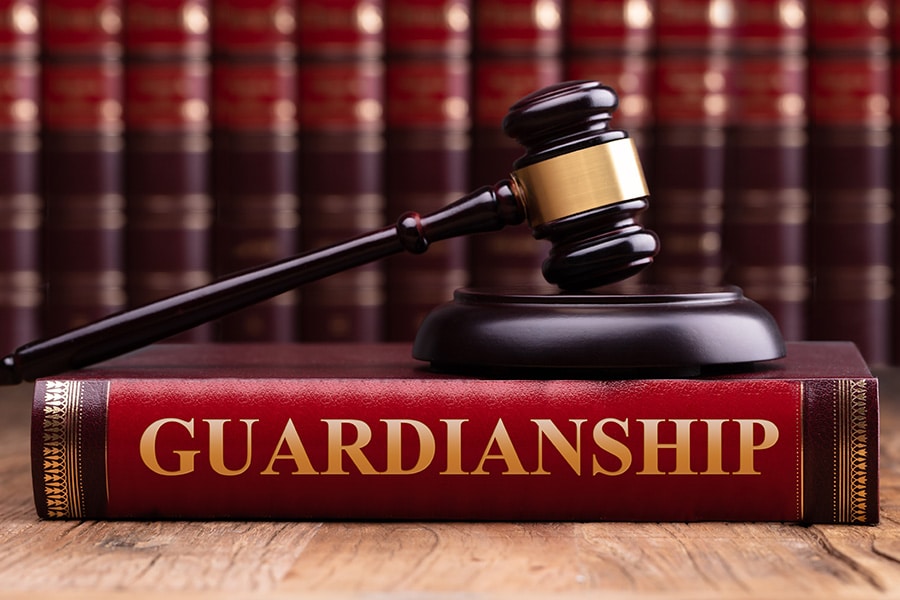A legal guardian can be a helpful addition to caring for your child. Whether you’re considering appointing a guardian or thinking of becoming one, you’ll need to know what guardianship entails. Read on to learn the differences between guardianship and parental rights to answer the question of does guardianship override parental rights.
What Is a Guardianship?
A guardian is an adult that is appointed by the court to care for a child. This power can be granted to an individual by the parents themselves or by the government. Guardianship does not override the rights of the parents. In California, a guardian appointed for a minor does not replace the parent but instead assumes certain responsibilities for the child’s welfare. While guardians can make day-to-day decisions for the child in their care, they do not possess the full spectrum of parental rights.
What Does a Guardian Do?
A guardian has the authority to care for the child, but there are some things they cannot do. Guardians can not make any major decisions for the child. This right is still reserved for the parents of the child.
Guardians serve more day-to-day functions of caring for the child. They may take the child to school, doctor appointments, and other events. The exact role of a guardian is unique from situation to situation. Each guardian’s responsibilities will be outlined in the court documents granting them guardianship.
Does the Parent Choose the Guardian?
The court will make the final decision on who will protect the best interests of the child. However, parents can give a preference to whom they wish to become a legal guardian for their children if needed. The court will usually use the parent’s preferred guardian if they become incapacitated or cannot care for the child.
If the parent is still living, they can choose to appoint a guardian whenever they want. Even after filing the court documents to appoint temporary guardianship, a parent can change or revoke guardianship at any time.
However, the parents may have less authority when the guardian is appointed by court order against their wishes. This occurs when the court appoints a guardian because they believe the child’s well-being is at risk.
Is Guardianship Permanent?
Unlike parental rights, guardianship is temporary. The court can remove the guardian at any time. Sometimes an expiration date is added when the guardian is appointed. At that time the guardianship will expire.
Parental rights, on the other hand, are not temporary. Parental rights can only be terminated if the court deems them unfit.
When the biological parents are alive and capable of caring for the child, guardianship is often temporary. In these situations, the exact length of the guardianship will depend on how long the guardian is needed.
If the parents are deceased or have had their parental rights terminated, permanent guardianship may be granted. Permanent guardians will usually last until the minor child turns 18. Some of the reasons a permanent guardianship can end before the child turns 18 are as follows:
- The minor joins the military
- The minor is married
- The minor enters a registered partnership
- The guardian can no longer carry out their duties
In most cases, a parent has the right to terminate guardianship at any time for any reason. Guardians are often appointed by the parent for a temporary amount of time. When the guardianship is no longer needed, the parent may terminate.
Guardianship Versus Parental Rights
Parents retain the ultimate authority over major life decisions concerning their child unless a court explicitly limits these rights. This authority encompasses decisions about:
- Educational Choices: Parents decide where the child will go to school, unless the court grants this power to the guardian, typically if the parents are deemed unable to make these decisions effectively.
- Medical Care: Parents also retain the right to make medical decisions for their child unless their legal rights have been suspended or restricted due to incapacity, neglect, or abuse.
Even when a guardianship is established, parents maintain the right to have contact with their children. This contact is subject to any specific limitations or provisions ordered by the court, particularly in situations where the child’s safety may be at risk.
There are circumstances under California law where a guardian may be temporarily granted increased decision-making authority. These situations typically arise when:
- Physical Custody: The guardian has physical custody of the child, and it is in the child’s best interest for the guardian to make certain decisions.
- Parental Rights Suspended: The parental rights are suspended due to reasons such as incarceration, hospitalization, or adjudicated incapacity.
Even in these cases, the guardian does not obtain parental rights over the child; instead, they receive limited authority to make decisions that are crucial for the child’s immediate care and daily needs. This does not extend to overriding parental rights permanently or making irreversible decisions without further court approval.
Final Thoughts
In summary, while guardians in California can perform essential roles in the care and protection of a child, they do not replace the parents or acquire full parental rights. Guardians act under the guidance and limitations set by court orders, which define the scope of their responsibilities and powers. This ensures that the child’s needs are met while respecting the ongoing legal rights of the parents. For more information about the legal process for appointing a guardian, give us a call at 800-840-1998. We have experts on hand ready to address your questions about choosing a guardian for your children.
